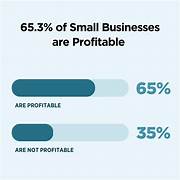How Small Retail Businesses in the US Maintain Their Accounts
Introduction
Small retail businesses in the United States face numerous financial challenges, from managing cash flow to tracking expenses and ensuring tax compliance. Effective accounting practices are essential for their survival and growth. This article explores how small retail businesses maintain their accounts, the tools they use, and best practices for financial management.
Importance of Accounting for Small Retail Businesses
Accounting plays a crucial role in helping small retailers:
- Monitor income and expenses
- Ensure tax compliance
- Manage cash flow efficiently
- Make informed business decisions
- Secure loans or investment opportunities
Without proper accounting, businesses risk financial instability and potential legal issues.
Common Accounting Methods Used by Small Retail Businesses
Small retail businesses generally follow one of two accounting methods:
- Cash Basis Accounting: This method records transactions when cash is received or paid. It is simple and ideal for businesses with minimal transactions.
- Accrual Basis Accounting: Transactions are recorded when they are incurred, regardless of when the payment is made. This method provides a more accurate financial picture and is recommended for businesses planning for growth.
Essential Accounting Tools and Software
Many small retail businesses utilize accounting software to streamline their financial processes. Some popular tools include:
- QuickBooks: A widely used accounting software that offers invoicing, payroll, and expense tracking.
- Xero: Known for its user-friendly interface and cloud-based accessibility.
- Wave: A free accounting tool suitable for small businesses.
- FreshBooks: Ideal for businesses that require invoicing and payment tracking.
- Zoho Books: Provides automation features for seamless financial management.
These tools help retailers automate record-keeping, generate financial reports, and prepare tax filings.
Key Financial Records to Maintain
To ensure proper financial management, small retail businesses should maintain the following records:
- Sales Records: Track daily, weekly, and monthly sales for revenue analysis.
- Expense Reports: Document operational costs such as rent, utilities, and inventory purchases.
- Inventory Records: Maintain updated stock levels to prevent losses and optimize supply.
- Payroll Records: Keep track of employee wages, taxes, and benefits.
- Bank Statements: Reconcile transactions regularly to ensure accuracy.
- Tax Documents: Store tax returns, deductions, and receipts for IRS compliance.
Managing Cash Flow Effectively
Proper cash flow management ensures that a business has enough liquidity to cover expenses. Best practices include:
- Setting a Budget: Establish a monthly or quarterly budget to control spending.
- Monitoring Receivables: Follow up on unpaid invoices to maintain a steady income.
- Negotiating with Suppliers: Secure better payment terms to improve cash flow.
- Reducing Unnecessary Costs: Identify areas where expenses can be minimized.
- Using Cash Flow Forecasting: Predict future cash needs to prevent shortfalls.
Tax Compliance and Financial Reporting
Small businesses must adhere to federal and state tax laws. Key tax responsibilities include:
- Sales Tax Collection: Retailers must collect and remit sales tax based on state regulations.
- Income Tax Filing: Business income must be reported accurately to the IRS.
- Payroll Taxes: Employers are required to deduct and submit payroll taxes for employees.
- Quarterly Tax Payments: Some businesses make estimated tax payments to avoid penalties.
Regular financial reporting helps businesses stay on top of their tax obligations and prevent legal issues.
Hiring a Professional Accountant vs. DIY Accounting
Many small retail businesses choose between hiring a professional accountant and handling accounting in-house.
- Hiring an Accountant: An experienced accountant can provide tax advice, financial forecasting, and compliance support.
- DIY Accounting: Business owners using accounting software can manage their books independently but must ensure accuracy.
Some businesses adopt a hybrid approach, handling daily transactions internally while consulting an accountant for tax preparation and audits.
Conclusion
Maintaining proper accounting records is vital for small retail businesses in the US. By leveraging accounting software, managing cash flow efficiently, and complying with tax regulations, small retailers can achieve financial stability and growth. Whether opting for DIY accounting or professional assistance, staying organized and proactive is key to long-term success.


